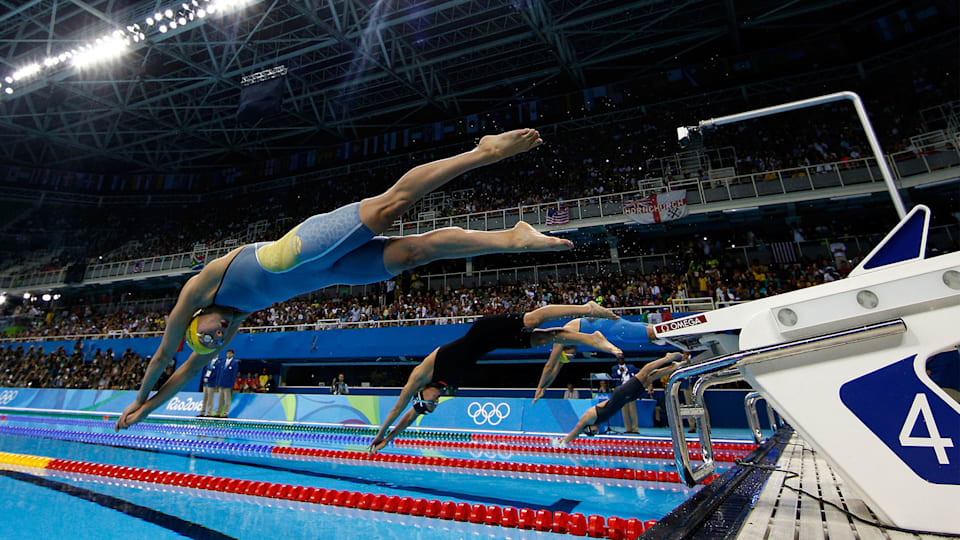Olympic champion Sjostrom’s guide to swimming
Before she became an Olympic and serial world and European champion, Swedish swimmer Sarah Sjostrom was an eager junior learning her trade, just like the 4000 young athletes who will battle it out in the pool at Buenos Aires 2018. Here, the multiple world record holder gives her top tips for all aspiring champions.

“One of the best bits of advice I got as a junior was: remember that winning and failing are parts of being an athlete, so you have to learn how to handle them both,” said Sarah Sjostrom.
“They are both parts of the process. Sometimes when you win all the time, people have trouble handling it when you don’t get what you want. You have to learn to be (comfortable) with that and how to deal with everything around it.”
Sjostrom’s story is proof of the value of such statements. In early August the Swede became the most decorated female European championship swimmer in history, grabbing four golds at Glasgow 2018 to take her career tally to an astounding 23 European medals. But it has not always been easy.
The 25-year-old’s triumph in the 100m butterfly at Rio 2016 was her first Olympic gold at her third Games. A combination of poor form, strong opponents and bad luck had left the perennial European champion frequently frustrated on the biggest stage of all. Perspective was key in changing that narrative.
Sjostrom is adamant that no one can succeed without the right environment in which to train and live. Swimming may be an individual sport, but you cannot do it alone.
“You have to surround yourself with good teammates who can help you get through those long, hard sessions,” said Sjostrom, who holds world records in six events.
“If you do that, it’s going to be a lot easier. If you have people around you who complain all the time or if you train by yourself, you can’t push yourself to the limits.”
Getting the right coach on board is crucial. But, in Sjostrom’s eyes, it is just as important to know your own mind.
“You have to chat with your coach and tell him your goals or ask him, ‘Are we doing enough for me to reach this goal or do we have to do something else?’” she said, before adding firmly, “Don’t be scared to talk to your coach about stuff.”
The 10-time world champion splits her training time between national camps in Stockholm and international training in Turkey. At times, junior swimmers join both groups and Sjostrom is always keen to seek them out and give them any advice she can.
Being 1.82m tall, not to mention confident, forthright and with interests ranging from football to interior decorating, the Swede has never been one to fade into the background. So it may be no surprise that taking personal responsibility is always a key part of the message Sjostrom delivers.
“Everything is a part of being an athlete, it’s not only hard work in the pool,” she said. “There are a lot of things you need to be good at to become a really good professional athlete, like having the right diet, sleeping enough, doing the right kind of weight training; find what works for you.
“There are one million different ways to train. I can’t train the same way as everyone else in my group, I need something for just me.
“Don’t expect everyone else to tell you how to do stuff, you need to do it your way.”
Sjostrom’s way is certainly working. And it’s a way well worth following.
